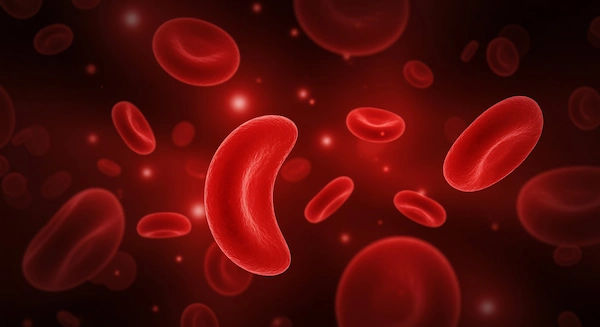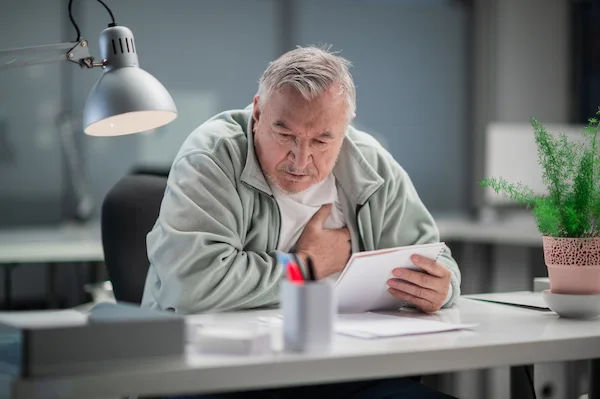- Male
- 35 Years
- 07/02/2025
I'm really worried because I had Covid back in November 2020 and even though I got better with home quarantine, I've been having these palpitations. I was on Prolomet XL 12.5 for three months, but it was stopped and I don't have any other health issues. My weight is 85 kg and I'm 5 ft 7 in. Lately, I find myself googling symptoms a lot and after Covid, a few palpitations really made me anxious, and I think I've developed this fear of heart issues. Between December and April, I had my ECG and 2D ECHO done twice and a 24-hour Holter monitoring, all of which came back normal. But now, for the past couple of days, I've been experiencing a little indigestion. Today, after lunch, I felt a mild pain around my heart, though it disappeared after a few seconds. Could this just be my anxiety, or should I get my heart checked out more thoroughly? Your advice would mean a lot.
Answered by 1 Apollo Doctors
Based on your history of palpitations post-Covid and your current symptoms of indigestion and mild pain in the heart area, along with normal ECG, 2D ECHO, and 24-hour Holter monitoring results, it is more likely that your symptoms are related to anxiety rather than a cardiac issue. To address your symptoms of anxiety and cardiophobia, I recommend continuing with lifestyle modifications such as regular exercise, stress management techniques, and maintaining a healthy diet. Additionally, you can consider therapy or counseling to help manage your anxiety. If your symptoms persist or worsen, you can discuss with your healthcare provider about starting a medication such as Escitalopram 10mg once daily to help with anxiety symptoms. However, it is important to continue monitoring your symptoms and follow up with your doctor regularly.
Dr. Dr Khaleel Suggests...
Consult a Cardiologist
Answered 04/07/2025
0
0

More Cardiology Health Queries
View allI'm 32 and dealing with anxiety and hypertension. I've been diagnosed with mild concentric left ventricular hypertrophy after a 2D echo. My doctor mentioned taking a TMT and prescribed me TelmaCT 4012.5, Inderal 10, and Rosuvastatin 20. Do you think I should go ahead with the TMT? I'm feeling a bit worried about all this.
Since you are already diagnosed with mild concentric left ventricular hypertrophy, it is important to follow your doctor's advice and go for the TMT (Treadmill Stress Test) as suggested. This test will help assess your heart's response to physical stress and evaluate any possible blockages in the arteries.
Answered by 1 Apollo Doctors
I'm a bit worried after seeing my ECG report that mentions Severe TR PAH. Can you help me understand what this means? I'm really concerned about what it might mean for my health and if there's a way to treat or cure this. I've got the detailed report here if that helps.
Severe TR (tricuspid regurgitation) and PAH (pulmonary arterial hypertension) are significant findings. Tricuspid regurgitation means that the tricuspid valve in the heart is not closing properly, causing blood to flow backward into the right atrium. Pulmonary arterial hypertension indicates high blood pressure in the arteries that supply the lungs. These conditions can lead to symptoms like fatigue, swelling in the legs and abdomen, and shortness of breath. The management of these conditions typically involves medications such as diuretics to reduce fluid buildup, vasodilators to lower pulmonary artery pressure, and possibly anticoagulants if there is a risk of blood clots. In some cases, surgical intervention may be required to repair or replace the tricuspid valve. It's crucial to follow up with a cardiologist for a comprehensive evaluation and personalized treatment plan
Answered by 1 Apollo Doctors
I've been having shortness of breath and recently got an Echo done, which said there was mild LVH. A couple of days ago, I noticed a little blood when I spit, and my doctor recommended I take Augmentin 625 and Montair LC for a week. I've been on them for two days now, but I noticed bright red blood when I spit again today, with no mucus color. I also have GERD and have had this issue for more than six years. Could the medication or the GERD be causing this, or should I be worried about something more serious?
check for TB once and review
Answered by 1 Apollo Doctors
Disclaimer: Answers on Apollo 247 are not intended to replace your doctor advice. Always seek help of a professional doctor in case of an medical emergency or ailment.


.webp)


 Purpose, Procedure, and Results.webp)